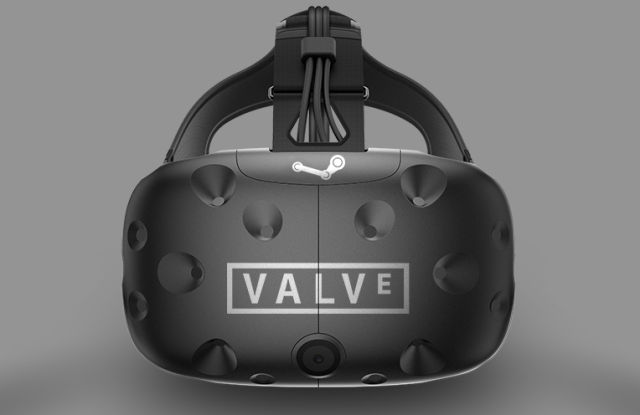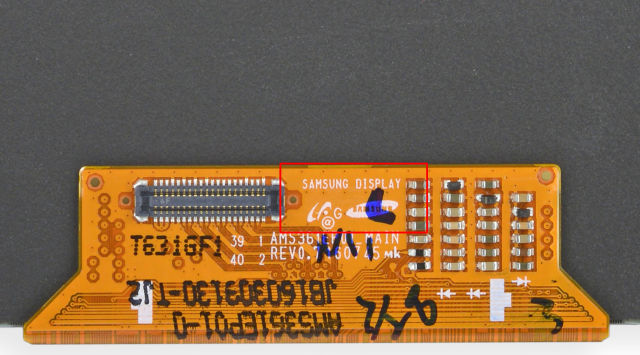
HTC has recently announced it is spinning off its VR division into a wholly owned subsidiary called "HTC Vive Tech." The move seems to suggest that VR headsets are now a pillar of HTC and that the company will be a player in the VR market for years to come. While the HTC Vive is a compelling device, and the best VR headset out there, the driving force behind the Vive is co-creator Valve. I think HTC is taking way too much credit for the Vive's creation.
HTC is struggling mightily in the smartphone market and is still good for a 40-percent year-over-year decline in revenue every month. The Vive—a "joint effort" between HTC and Valve—is a rare bright spot in the company's lineup, but I think it's a temporary reprieve. Evidence shows HTC had little to do with the technology behind the Vive. HTC is more like Valve's tool, and while the company is in charge of manufacturing the Vive right now, HTC won't be left with any IP or competitive advantages once Valve is done with it.
"HTC Vive" makes about as much sense as "Foxconn iPhone." The name "Valve Vive" would probably be more appropriate. HTC seems more like the contract manufacturer for the device, building the Vive for Valve the same way Foxconn builds iPhones for Apple. The Vive is a product of Valve research using licensed Valve technology and Valve software in an effort to kickstart Valve's VR ecosystem. The only oddity is that, through a weird quirk of branding, HTC's name ended up on the side of the device.It's not hard to imagine why Valve declined to have its name emblazoned on the side of the Vive. Valve is a software company and ecosystem builder. It needs the Vive right now to build out Steam VR, develop VR games, and own the VR ecosystem the same way it owns the general PC gaming ecosystem. Somebody needed to build a VR headset today, though, so until it becomes more lucrative for regular electronics companies to do it, Valve took it upon itself (and recruited HTC) to build the first Steam VR headset.
In the future, Valve wants multiple hardware vendors competing to make the best VR headset, with the company as a neutral third party. Valve probably kept its name off of the HTC Vive to avoid being seen as playing favorites and to send a message that Steam VR is a place for any hardware manufacturer that wants to compete. Valve is happy to stay out of the hardware spotlight, and HTC is desperate for some kind of successful product. This is fine, but HTC should stop desperately trying to convince itself it's going to be a major player in VR in the future.
What exactly did HTC make in the "HTC" Vive?

Let's look at who built the important parts of the "HTC" Vive. A VR headset is basically a fancy computer monitor with a tracking system that you strap to your face, so of course a big part of the future of VR improvements will come from improvements in display technology. Since the screen is just a few inches away from your face, VR is extremely demanding on the pixel density of a display. Today's "2K" panels are not dense enough to make full use of our visual acuity, and we have a long way to go before we can build the insanely high-resolution panels needed. Michael Abrash, former Valve employee and current chief scientist of Oculus, has said that a "16K by 16K" resolution would be needed for "retinal resolution" with a 180-degree field of view.
HTC doesn't make displays, so inside the Vive is a pair of Samsung AMOLED panels. As the world's top supplier of OLED panels, Samsung is an example of a company that belongs in VR. Samsung is a big partner of Oculus—Samsung supplies display panels for the Rift, and the two companies co-develop the Samsung Gear VR, which is powered by a Samsung smartphone. I'd also expect LG and Sony—two other display manufacturers—to have a viable spot in the industry, too, if they choose.How about another key component of the HTC Vive, the tracking technology? The Vive's "Lighthouse" tracking technology is probably the most important part of the headset, offering sub millimeter tracking precision with the ability to move around a virtual room and track both controllers. This wasn't an HTC creation, either. Valve did all the engineering work for the "Room Scale" tracking, starting with an early prototype called the "Valve Room" that worked with a camera that read AprilTags (think QR Code bar codes, but 3D positioning) plastered all over the wall. HTC's own press release even says that "Vive combines Valve’s Steam VR tracking and input technologies with HTC’s world-renowned design and engineering talent" [emphasis ours].
While the Vive is the first device to use Lighthouse technology, HTC can't count on it as a differentiator in the future. Valve co-founder Gabe Newell told Engadget: "So we're gonna just give [Lighthouse technology] away. What we want is for that to be like USB. It's not some special secret sauce." The move will be great for the VR ecosystem, but devastating for HTC. If HTC wanted to have a future in VR, retaining this technology would have been a key step in keeping it competitive. The company probably didn't have a say in the matter though, since, again, Valve developed and owns the technology, and HTC is just the manufacturer.
Next important item: the controllers. We can't say HTC had a big hand in these, either. They combine Valve's tracking sensors with Valve's trackpad technology from the Steam controller. The same goes for the software, which is all Valve created. Valve owns Steam VR, and it's Valve—not HTC—that has a patent on the "chaperone" virtual wall system.So what exactly does HTC bring to the table? Well, according to HTC's press release, it's the "design and engineering talent" needed to create a final product. We'd guess that involves the outside plastic, internal electronics connecting all of Valve's core technologies with one another, and the supply chain and vendor relations management to actually get the thing pulled together and made. That's not a trivial piece of the puzzle, but it's also the area where the Vive is the least competitive with the Oculus Rift. As our own Kyle Orland put it in his comparison, "If there’s one area where the Rift unquestionably bests the Vive, it’s in the design of the physical headset." Lee Hutchinson called the Vive "giant," "clunky," and "weirdly bulbous" compared to the Rift, but he liked the Vive better thanks to the superior technology.
A "fast mover" that can't compete with the big players
Daniel O'Brien, HTC's vice president of VR, once said in an interview with Engadget, "We knew that VR was very similar to the early days of smartphones. This is a new medium, this is coming, we know it's coming. We need to get in on the forefront of it." This strategy mirrors HTC's approach to smartphones. The company was one of the early smartphone manufacturers, making Windows Mobile devices and the first-ever Android phone, the T-Mobile G1. HTC was doing well in the smartphone market several years ago, before Apple and Samsung showed up. Then HTC had to compete with larger companies, and it was just never able to keep up.
As the manufacturer of the Vive, HTC again has the advantage of being a fast mover, but it seems inevitable that history will repeat itself. Samsung recently announced the company was working on a standalone VR headset. We don't know if this is an Android-based device or PC peripheral, but if SteamVR takes off, HTC will have to do some uncharacteristic innovating, since it won’t necessarily have Valve supplying its next set of specifications.
HTC's primary advantage in the VR market is its relationship with Valve. HTC doesn't own the technology, platform, or software it is currently celebrating, so what will happen to the company if Valve decides to step back from the hardware business or do business with one of HTC's competitors? HTC's lack of a competitive advantage makes it hard to imagine the company has a serious future when it comes to VR. For now, this is a nascent market, and HTC can continue to be a small fish in the shallow VR waters. Eventually, the market will get bigger, the big fish will come, and HTC will get eaten.
reader comments
127